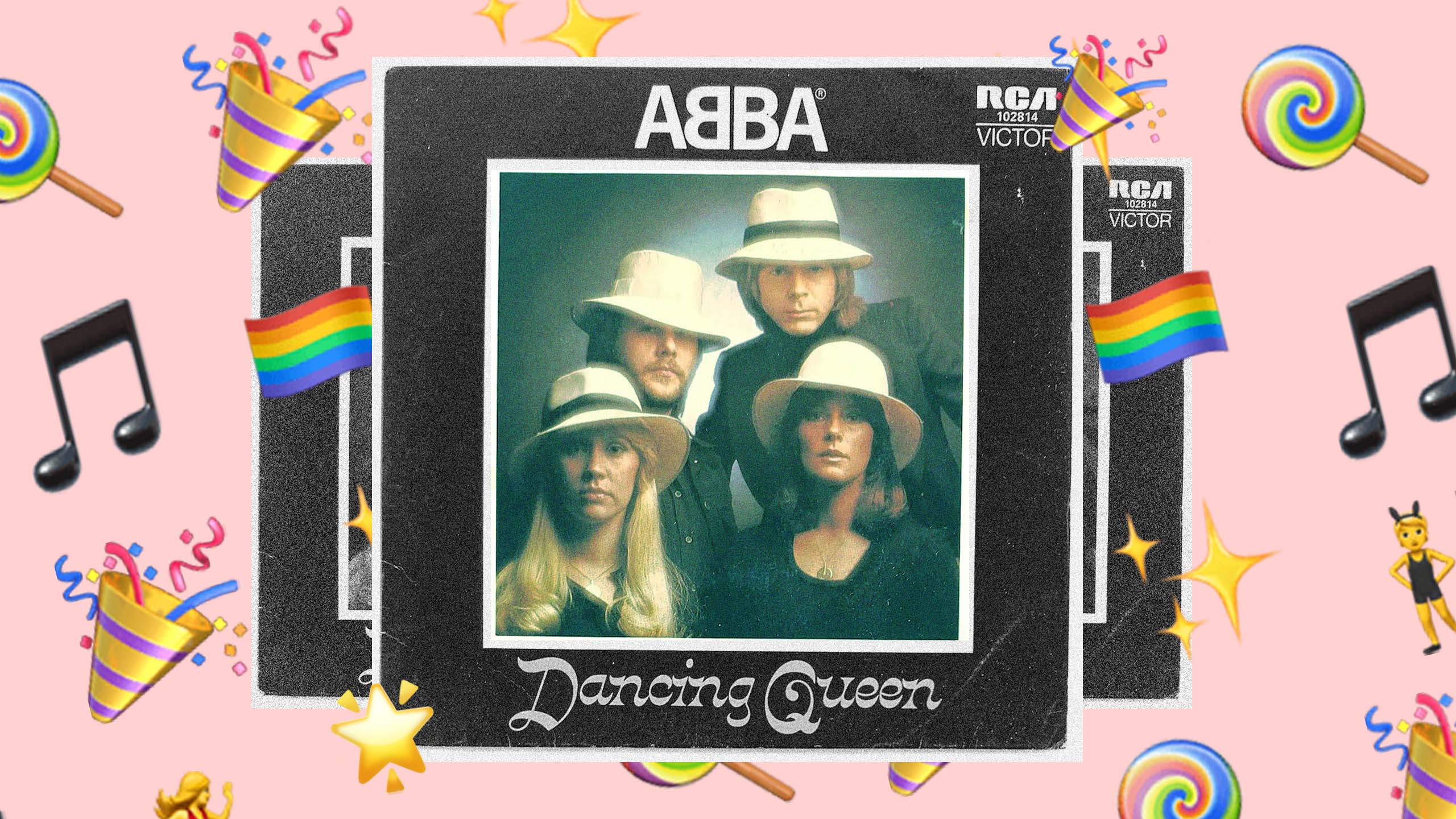You can dance, you can jive—and you had the time of your life naming “Dancing Queen” the most iconic Pride anthem of all time in our bracket.
I’ll admit it, dear reader: I was initially a bit baffled. When we came up with the idea to run a Twitter bracket throughout the month of June to find Xtra readers’ choice Pride anthem, there were obviously some early favourites we expected to do well.
Gloria Gaynor’s “I Will Survive” has long been heralded as an anthem of AIDS resilience (much to Xtra editor Paul Gallant’s dismay). Diana Ross’s “I’m Coming Out” is self-explanatory in its bop status. And even for the younger generations, it’s hard to get more iconic than Lady Gaga’s “Born This Way.”
And yet week by week, all of those early favourites fell resoundingly to the power of the dancing queen.
Yes, last week in the Final Four vote of Xtra’s Pride anthems bracket, ABBA’s “Dancing Queen” earned 45.7 percent of the vote, beating out both Ross’s and Gaga’s hits, along with Lil Nas X’s modern anthem “Montero (Call Me By Your Name).” A total of 713 readers cast their opinions in the final poll, adding to the over 2,500 votes cast throughout the month.
And while “I’m Coming Out” had some love early in the final voting period, by the end it wasn’t even close: “Dancing Queen” is definitively Xtra readers’ favourite Pride anthem according to this poll.
It’s a result that initially confused me (my money was on Diana Ross to take it all) but the more I’ve reflected, the more it makes sense. A karaoke classic, an ABBA hit and a wedding dancefloor staple is, unofficially, the number-one Pride anthem. And, honestly, you just have to smile about it.
What does it mean to be a Pride anthem?
Music is powerful in how it can embed itself into our memories and lives, and that can be especially true for queer and trans folks. The idea of “gay anthems” or “queer anthems” has been around for decades. The editors of the 2001 book Queer posited 10 features of a gay anthem, ranging from themes of overcoming hardship in love to making no apologies for who you are.
Everyone has their own queer anthems tied to their personal experiences. Maybe a first girlfriend introduced you to k.d. lang.” Maybe SOPHIE’s “Immaterial” was playing on the dancefloor when you met the man who changed your life. Maybe Against Me! is your go-to soundtrack when you road-trip with your other trans friends, or maybe you just listened to Kate Bush’s Hounds of Love a lot right after you came out and it’s stuck in your head forever (or maybe that’s just me).
But when it comes to universality—that is a Pride anthem for everyone—“Dancing Queen” makes sense. It’s light, it’s breezy, it’s easy to sing along to (I know it’s already stuck in your head if you’ve read this far). And everyone can find a point of connection: Are you the teaser who turns them on? Or are you the one left hanging when they’re gone? Are you the one looking for a king? Or are you the king (after all, anybody could be that guy!).
There’s value to songs about the intricacies and intimacies of the queer experience, whether that’s taking a fast car so you can drive away or giving a lap dance to the devil. But there’s also value in a queer anthem for everyone, especially right now.
With a bit of rock music, everything is fine
“Dancing Queen” is about joy and elation. It’s about catharsis and release and celebration—something perfectly captured in this scene from Mamma Mia! Here We Go Again.
As the critic Glen Weldon wrote for NPR upon the film’s release, that moment captures everything a queer anthem should.
“It’s ecstatically shot, charmingly choreographed and sunnily performed,” Weldon wrote. “Hear my prediction: Once this film makes its way onto streaming services, clips of this number will live in hundreds of thousands of browser windows, waiting to be tabbed over to, and clicked upon, as dependable, desperately needed mid-afternoon mood-lifters.”
In the year 2022, amidst a Pride month clouded with horrific rulings from the U.S. Supreme Court and continued legislative attacks on queer and trans people, it’s an understatement to say that we all could desperately use that mid-afternoon mood-lifter.
The triumph of “Dancing Queen” in this poll speaks to its universality, and to the patchwork quilt of LGBTQ2S+ experiences. It speaks to needing a little lift in this moment of darkness. And it speaks to the power of an iconic bop, even if it doesn’t carry lyrical substance.
Maybe we’ll try it all again next year and get a different answer with a lot deeper meaning. Or maybe ABBA’s timelessness will continue. Until then, we are all the dancing queens.


 Why you can trust Xtra
Why you can trust Xtra


